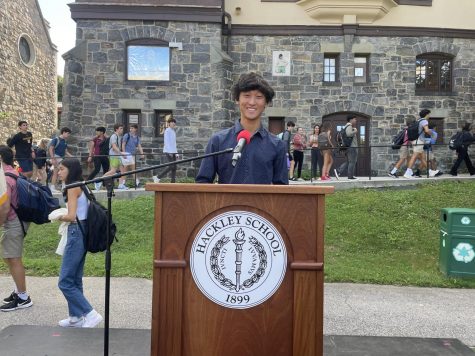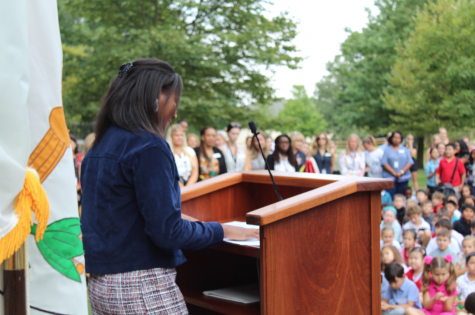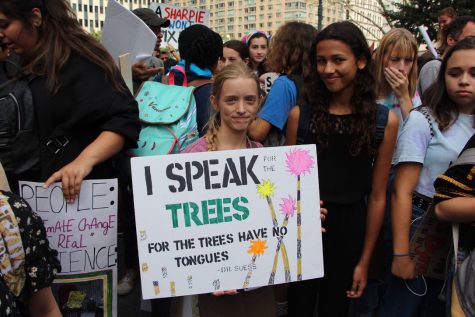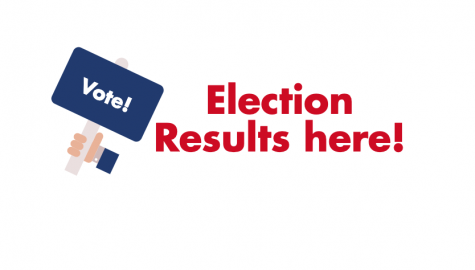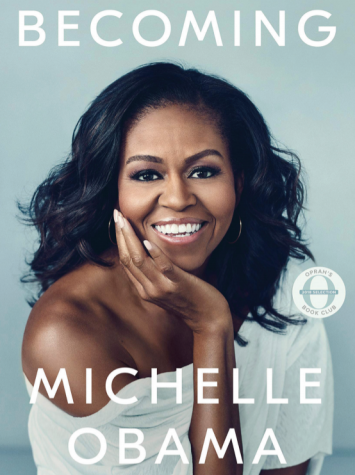Student Critique of 2016 Election
May 30, 2016
“Lesser of Two Evils”: The 2016 Presidential Election
By Clay Sullivan
I like to say that if you don’t like how your government is set up, and you didn’t vote, then you don’t really get a legitimate reason to complain – unless you voted for Al Gore in 2000 and watched George Bush win instead, despite Gore winning the popular vote. As a result of the two party system, people have historically had to choose from the “lesser of two evils.”
The 2016 election season has once again polarized this country’s politics, leaving little to no room for anybody to rise through the middle. To the amazement of foreign organizations like the Canadian NDP and the UK Lib-Dem Party, an anti-establishment candidate has been able to rise quite high in the ranks of the Democratic Party.
Despite having the deck stacked against him, Bernie Sanders has been able to capture the minds of the forward-thinking youth demographic by fighting for people suffering from crushing college debt and the 99%, and fighting against the unfair attempts by the political establishment to suppress his message. Sanders, however, has failed to secure enough delegates in order to win the Democratic nomination, despite the fact that he has repeatedly polled stronger against GOP candidates than his Democratic opponents.
If the people in this country did not have to restrict themselves to two parties, there would be opportunity for more left-leaning and centrist politicians. With our political system in its current state, there is no easy path to change without first regulating where politicians can get campaign money from, eliminating media bias and manipulation, and replacing the electoral college with a more open and democratic popular vote.
Rise of the Radicals: Recounting Trump and Sanders’ Success
By Chris Thompson
Well, it happened. Donald Trump will almost certainly be the Republican nominee, despite the GOP’s best attempts to take him down. What’s more, with each passing day Hillary Clinton appears more and more likely to be the Democratic Party’s nominee. Each of these two candidates have abysmally low favorability ratings, causing most people to vote for who they perceive to be the lesser evil.
Despite the less than satisfying candidates, this election cycle has the potential to cause massive upsets to American politics. The level of success that Democratic and Republican candidates have received has shown the shift in public opinion of the American people.
Trump has swept the Republican Party in part by spreading his populist message, but also by appealing to the public’s general frustration at the political establishment’s inability to solve the problems plaguing America today. People feel less safe with terrorist attacks being more frequent, they still feel threatened by illegal immigrants taking their jobs, and they feel like America has, in part, lost its greatness.
Whether any of this is true is unimportant. Donald Trump has highlighted the establishment’s inability to make progress in regard to these problems, and has made people want a change in leadership to combat these perceived issues. The same kind of effect can be seen by Bernie Sanders’ campaign. Sanders has invigorated a similar group to Trump, one that is tired of being lied to by politicians and demands honesty and results. The difference, of course, lies in the policies that each group wants to achieve.
While the race is far from over, we can clearly see that what we once thought of as a politician has become unappealing to the voters, in favor of private citizens with fresh perspectives. Whether or not this trend will be better for the American political system remains to be seen, but it will almost certainly be welcomed, compared to what we have now.



